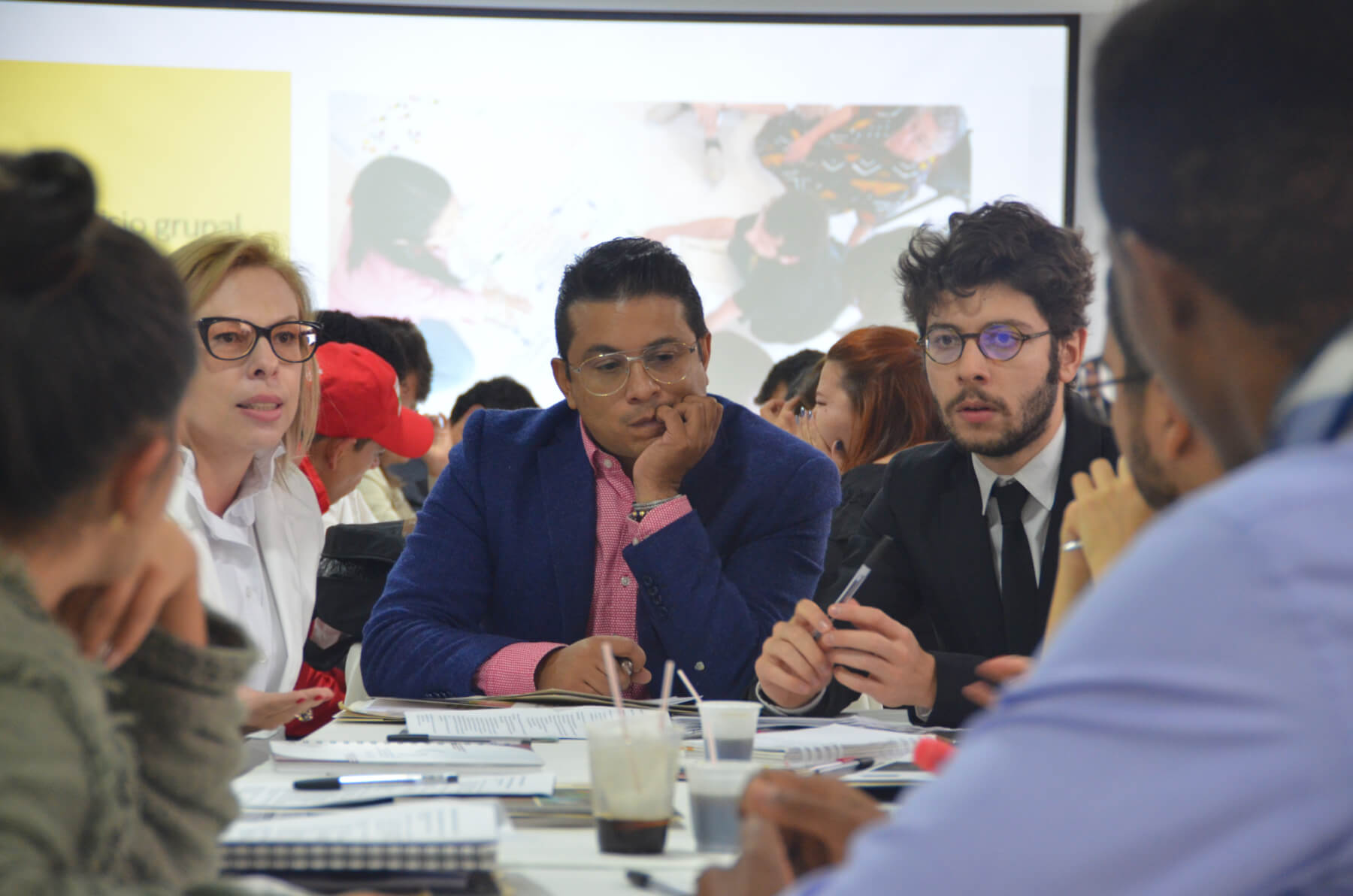Maria José Murillo, responsible for supply chains in the Alliance for Responsible Mining (ARM)
(First blog of the series consisting of two articles)
“The opinions expressed in this publication are exclusively from the authors and do not necessarily reflect the point of view of the Alliance for Responsible Mining, its Board of Directors, or its technical team.”
Could you imagine our modern world without financial services? How would you relate to others? How would you receive your wages? How would you pay your public services and taxes? How would you send money to your mother who lives in a different city?
Now, could you imagine a company without banking services? How would it complete payroll? How would it receive payment for its products or services? And if they export, how could they legally convert currencies? How would they finance their growth?
According to the World Bank, financial inclusion means having access to useful and affordable financial products that meet the needs of individuals and businesses in terms of transactions, payments, savings, credit, and insurance, in a responsible and sustainable manner.

According to the same source “Financial inclusion has a direct correlation with economic growth and development while contributing to poverty reduction.” Given this impact, several jurisdictions have promoted public policies aimed at facilitating the access to and use of financial services for the population.
Policies and interventions for financial inclusion led by G20 have been promoted and coordinated as a work plan with 4 components: 1. SME financing; 2. Regulation and standards; 3. Protection and education of the financial consumer 4. Payment systems.
In 2011 the Alliance for Financial Inclusion (AFI) was able to get 125 regulators from 96 countries, including Colombia, to accept the Mayan Declaration for financial inclusion, in which countries commit themselves to promoting inclusion policies.
Colombia has not been oblivious to this and in recent years has worked on the massification of financial services. Since 2006 it has adopted the financial inclusion policy and the Investment Program “Banca de las Oportunidades”.[1]
[1]Decree 3078 from 2006.

Inclusion roadblocks for rural sectors
However, the artisanal and small-scale mining (ASM) sector seems to be invisible to these inclusion policies. People making a living from ASM are facing major roadblocks in their financial inclusion due to three main factors:
- The negative view of the sector
- The lack of knowledge shared between the financial and the mining sector
- The lack of reliable information and articulation from state entities
The Ministry of Mines and Energy (MinMinas) has made significant efforts to support and regulate the formalization process of ASM through the Mining Formalization Department. However, these efforts constantly surface during times when miners must connect to formal markets and do not have the financial services necessary to channel money from their sales. Mining is a rural activity, but it is not covered by the rural financial inclusion policies applicable to agricultural activities.
Efforts towards financial inclusion?
While there is no explicit obligation for miners to be “banked” to make formal sales, impeded access to these markets is a consequence of commercial practices in the sector and the State’s intent to reduce the use of cash. An example of this is Colombian law[2] which modifies the tax statute and establishes the progressive reduction of the tax recognition percentages of cash payments from taxpayers.
Since the 2011 mining census, MinMinas identified the absence of a financial link as one of Colombian ASM’s main problems. Given this reality, this state entity proposed a strategy to help overcome the roadblocks preventing them from entering the financial system and signed two Agreements with the Agrarian Bank of Colombia (Banco Agrario), taking into account the Bank’s wide geographic coverage (766 offices throughout the country).
[2] Law 1819 de 2016, article 307.
- Agreement 398 – 2015 sought the execution of a banking and credit program aimed at small and medium-sized mining within the national policy’s framework for the mining formalization.
- Agreement 370 – 2016 was created in order to finance investment projects for small-scale mining in the offset rate modality.

However, these agreements did not achieve the expected impact. In just over two years, by August 2018, only 15 credits equivalent to 5.577 million COP were granted, none of which were applicable towards the extraction of precious metals. As for the support from opening bank accounts, 29 savings accounts were opened for mineral sorters (scrap metals) and 21 payroll accounts in the department of Cauca. Finally, the monetization of currencies — indispensable for exporting — was only granted one account in the department of Antioquia, which was canceled by the same bank months later. As a result of this experience, it was also evident that for the gold ASM the difficulties are more prevalent.


Due diligence of the financial system
From the perspective of the financial sector, it is important to comply with the recommendations from the International Financial Action Task Force (FATF). They address the effective implementation of legal, regulatory, and operational measures to combat money laundering, terrorist financing, and the financing. of the proliferation of weapons of mass destruction, as well as other threats to the integrity of the international financial system.
According to this and the legislation applied by the Colombian government to ensure compliance, banks must perform due diligence of the potential client before establishing business relationships and continue to examine the transactions carried out throughout the relationship. Added to this are the additional measures and actions of due diligence applied specifically for clients, politically related activities, or for merchants of precious metals and stones.
In order to carry out these processes, a broad and specific understanding of the mining and commercialization sector of precious metals is required. This allows us to understand their formalization schemes and the risks that their activities run during each phase of the supply chain. However, the negative image of the mining sector regards human rights, money laundering, and environmental destruction among others. These issues conjoined with the limited knowledge about the mining financial sector and lack of accessible and reliable sources of information make bank compliance complicated when they assess the risks of a mining-related entity.
If the financial institution cannot meet the client’s due diligence requirements by using a risk-based approach, it cannot open the account, start business relationships, or conduct transactions, and should consider making a suspicious transaction report with the UIAF. In this scenario, the risk aversion of financial institutions when working with the gold mining sector is too high, creating barriers that are difficult to overcome. In addition, the Colombian legal system permits all individuals the principle of the autonomy of private will and the freedom to contract, thus giving full freedom to choose for whom they provide services.
The Financial Superintendence of Colombia, responsible for providing preventive and timely protection to the financial consumer, has limited capabilities. Within the framework of functional competencies assigned to the Financial Superintendence of Colombia enshrined into the Law, it is not permitted for the Supervised Entities to establish, maintain and/or cancel commercial, financial, stock, or insurance contractual links with certain individuals. Thus granting the freedom to choose and decide which of them they will enter into commercial relations with. According to this, as long as the financial entity presents an objective reason for its decision, it has the right and duty to deny the service.
However, this principle is restricted and has been maintained by both the Constitutional Court, in Judgment SU 157 of 1999, and Law 1328 of 2009. Said freedom is limited (i) by the specific nature of the activity being provided; (ii) due to being the credit and savings instruments necessary to guarantee the rights of individuals; (iii) by the constitutional prohibition of abusing one’s rights; (iv) by the principle of prevalence of public interest; (v) by the validity of the solidarity principle and (vi) by the ethical requirements of good faith.
—————————————————–


Maria José Murillo is an International Business Professional from la Universidad del Tolima y Magister in Social Responsibility and Sustainability from la Universidad Externado de Colombia. During her time as a professional, she has focused on topics related with the commercialization, formalization, and exportation of artisanal and small scale mining in different Latin American countries. She has worked with the ASM sector for 4 years.
Currently she is responsible for the Alliance for Responsible Mining’s supply chain and is a member of the Foundation’s Board of Directors.

